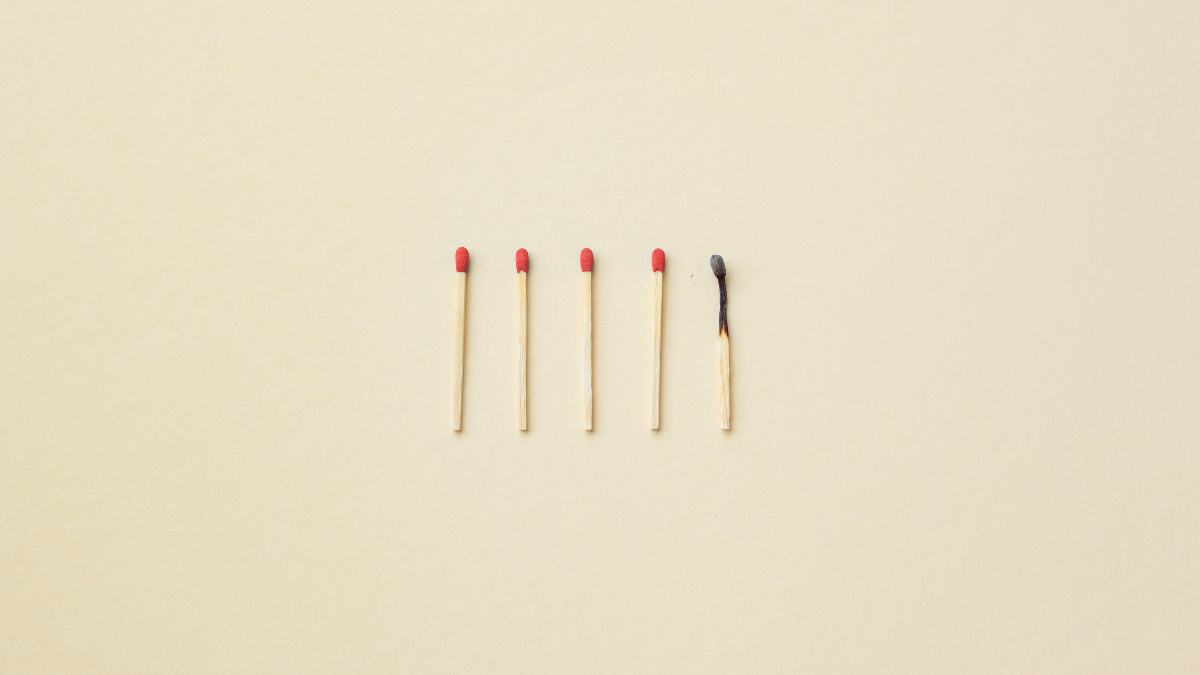Why Am I So Irritable Lately? The Psychology Behind Snapping

You drop your keys. You swear out loud. Someone asks a perfectly reasonable question, and you bark back at them without thinking. You’re not actually angry. You’re just... done.
If you’ve been feeling unusually short-tempered, easily frustrated, or like you’re one minor inconvenience away from snapping, you’re not alone. You’re not broken, either.
In fact, that irritability you’re experiencing might be trying to tell you something.
You’re not angry — you’re overloaded
Irritability is often misunderstood. It gets lumped in with anger, frustration, or being "bad tempered." But in psychology, it’s considered a low-grade emotional signal that your system is under stress.
It doesn’t always come from external triggers. Often, it bubbles up when you’ve hit your cognitive, emotional, or sensory limit. The brain becomes less tolerant of interruption, change, or demand. You lose patience not because you’re a bad person, but because you have no more bandwidth left to give.
In other words, you’re not snapping because you’re cruel. You’re snapping because you’re saturated.
What’s really behind persistent irritability
We often think of irritability as a mood issue, but it’s usually a sign of depletion.
Poor sleep is a common culprit. When you’re not getting enough deep, restorative rest, your prefrontal cortex — the part of your brain responsible for emotional regulation — goes offline. You become more reactive. More sensitive. More likely to catastrophise.
Chronic overstimulation also plays a role. If your brain is constantly juggling tabs, tasks, noise, and newsfeeds, your nervous system never gets the chance to downshift. Even minor annoyances can feel like threats when your body is in a constant state of low-grade alert.
And then there’s emotional fatigue. If you’ve been pushing down sadness, stress, or resentment, that pressure has to go somewhere. It often leaks out sideways — in snippy comments, eye rolls, or withdrawal.

The cost of snapping — and the guilt that follows
What often makes irritability worse is what comes after it.
You snap at a colleague. You brush off your partner. You get impatient with your kids. Then comes the guilt spiral. What’s wrong with me? Why can’t I hold it together?
The shame makes you withdraw. But the stress doesn’t go anywhere. So you hold it in, and then *surprise* you snap again.
It becomes a loop. And because you feel worse about yourself each time, you have even less capacity to show up the way you want to.
If that cycle sounds familiar, you’re not failing. You’re overwhelmed. And it’s time to listen to what your irritability is actually trying to signal.
Early warning signs you’re nearing your edge
Irritability rarely comes out of nowhere. But many of us don’t notice the early signs because we’re too busy pushing through the day.
You might feel more sensitive to noise, clutter, or interruptions. You might notice your jaw clenching or your shoulders tensing. Your inner monologue might start to sound sarcastic, impatient, or overly critical.
These are all cues that your system is stretched thin. If you can catch the signals early, you have a better chance of resetting before you lash out.
How to deal with irritability in the moment
First, name it. Not as judgment — just as observation. I’m feeling irritable right now. This gives your brain a chance to move from reactivity into awareness.
Next, find a quick reset. You don’t need a weekend getaway. Just a pattern interrupt. Step outside. Take three slow breaths. Close your eyes for thirty seconds. Drink a glass of water. Shake out your hands. Play a song. Move.
These aren’t magic fixes. They’re nervous system nudges. And they can be surprisingly effective.
Finally, make space for recovery before you need it. Build margins into your day. Say no where you can. Let go of tasks that don’t matter. And above all, stop expecting yourself to be emotionally bulletproof. You’re human.
When it’s time to get more support
Persistent irritability can be a symptom of something deeper. It’s common in anxiety disorders, depression, and chronic burnout. It can also be a trauma response, a sign that your system has learned to stay on high alert for too long.
If irritability is starting to damage your relationships, affect your work, or make you feel as if you are losing control, it might be time to reach out to a mental health professional or your GP. That’s not a failure. It’s a strength. You don’t have to figure it out alone.
Final thought: Irritability is a signal, not a flaw
The next time you feel yourself snapping, try asking: What’s my system trying to tell me right now?
Maybe you’re tired. Maybe you’re emotionally tapped out. Maybe your boundaries have been overrun. Maybe you’ve been trying to hold everything together for too long.
Whatever the case, irritability isn’t a personal failure. It’s a sign. The solution isn’t to push through. It’s to pause, pay attention, and respond with care.
You’re not meant to live on the edge of your tolerance. You’re allowed to create more room to breathe.
—MRB
My goal is to help people thrive in a complex world. While I write as a psychologist, this content is general in nature, does not constitute a therapeutic relationship, and is not a substitute for personalised mental healthcare advice. Further, some posts may include affiliate links to resources I recommend. Read my full site policy here.






Member discussion